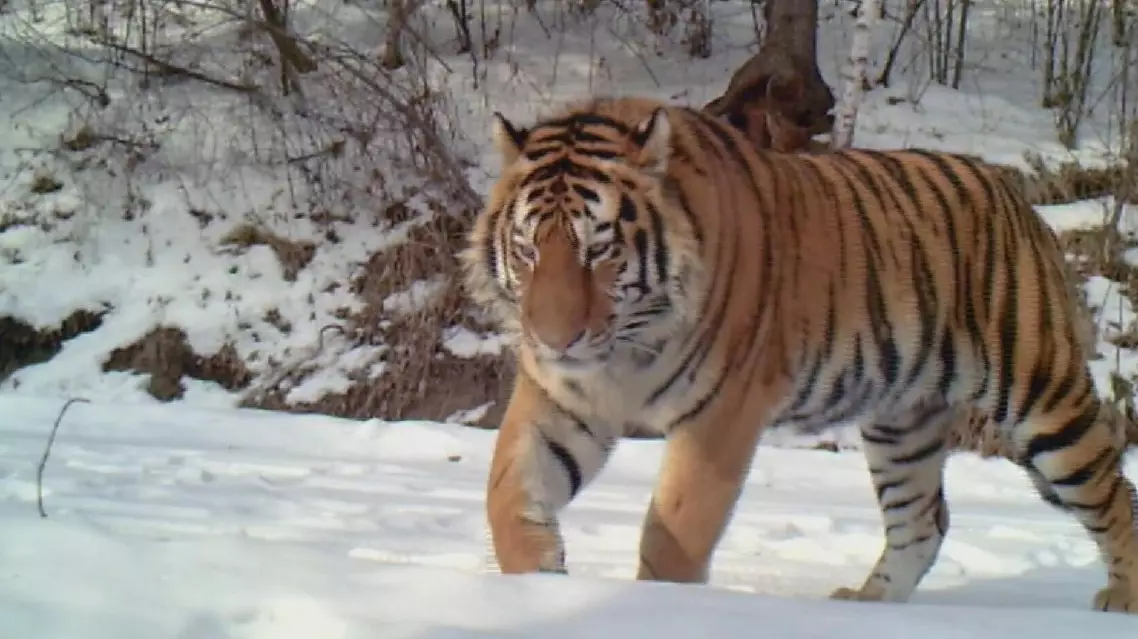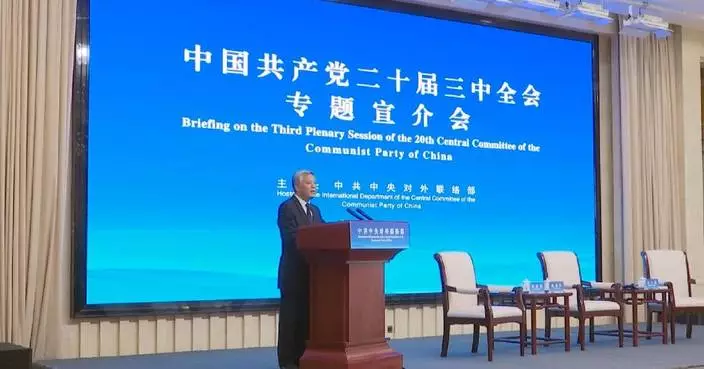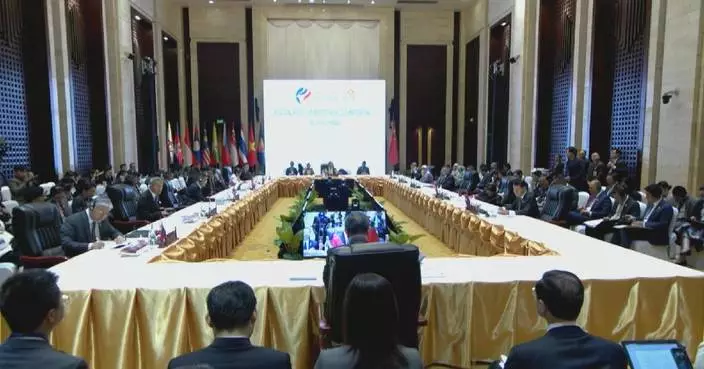The population of wild animals inhabiting along the China-Russia border has experienced a significant growth over the past year, thanks to a series of protection measures jointly implemented by Chinese and Russian conservationists, including setting up passages along the border for animals to migrate freely.
As one of the world's most endangered species, Serbian tigers, also known as Amur tigers, mainly lives in Russian Far East and the northeast region of China, with its main habitat in Hunchun, an area near the border between the two countries.
In recent years, China and Russia strengthened cross-border protection cooperation and jointly carried out monitoring and patrolling of tigers and leopards in Northeast China.
The two countries recently launched cooperation to jointly create animal passages to allow the free movement of tigers and leopards across the China-Russia border.
"We have been working with the border administration and opened 290 crossings for animals in the eastern part of the national park along the China-Russian border. Specifically, we've opened up a gap every few hundreds meters along the wire fence on the border of China and Russia, so that wild animals can cross China-Russia borders through the channels. In this way, the population of wild animals inhabiting on the border can be expanded," said Feng Limin, a professor with College of Life Sciences of Beijing Normal University.
Since the animal passages were opened up two years ago, numerous wild animals have moved freely between China and Russia, a benefit for barrier-free gene exchange and offspring breeding.
"We found that the wild animals used those passages at least 30,000 times over the past year, and at least 20 different Siberian tiger individuals crossed the China-Russia border, which is quite exciting. It plays an important role in the rapid growth of tiger and leopard populations in the border area of China and Russia," said Feng.
In the past five years, China and Russia maintained friendly cooperation in ecological protection, established a number of joint protection and joint monitoring systems, and opened up cross-border animal passages, creating a new cooperation model for the protection of cross-border endangered wildlife and the building of a community for human and natural life.
"Under the joint protection of China and Russia, the populations of Siberian tigers and Amur leopards began to grow, and other species such as sika deers moved freely between the two countries, which has sped up their population recovery and provided a good start and example for China and Russia to strengthen cooperation on ecological protection and carry out corridor construction," said Feng.

China-Russia joint efforts on Siberian tiger, Amur leopard protection bear fruit









